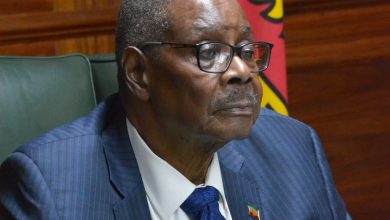Youths dictate terms, demand share of cake
Presidential candidates seeking the youth vote face a huge task as the young people expect them to commit and demonstrate that they will address their challenges in various sectors.
A 2025-2030 National Youth Manifesto that the Youth Decide Campaign (YDC) has developed with support from United Nations Development Programme (UNDP) and the Federal Government of Germany has 14 thematic areas that the next government needs to improve on for better youth welfare.
Speaking in Lilongwe yesterday during a stakeholder validation meeting for the Youth Manifesto, Youth and Society executive director Charles Kajoloweka, whose organisation coordinates the campaign, said what the manifesto has set are the minimum targets.

He said the manifesto will have to be integrated into government policies and YDC will track its implementation, stressing that political party manifestos should reflect and embrace the youth manifesto.
Said Kajoloweka: “Any political party, any political leader that does not speak to the youth manifesto does not really understand the future of this country; therefore, they don’t deserve a youth vote.
“If you have a political party manifesto that does not reflect the youth manifesto that manifesto is firing on youth.”
He added that as elections approach, YDC will seriously engage the youth on what they should consider when voting this year, arguing it should not just be about who to vote for, but what to vote for.
On how government performed against the last manifesto, Kajoloweka described the level of implementation of the 2019-2024 youth manifesto as a mixed bag, saying there are some areas where government has done well while in others it has failed.
Some of the areas where government has done well are increasing enrolment for tertiary education, and increasing National Economic Empowerment Fund loan facilities and access to loans.
However, he said government has not done well in job creation, corruption fight, and the implementation of reforms.
Weighing in, Point of Progress executive director Gift Numeri said if the issues young people are advancing will not be addressed, the country will have a crop of people that will be difficult to govern.
He said having youths that are not economically active will affect development.
Among others, the Youth Manifesto wants the next government to improve education standards, create jobs and business opportunities for youth, fight corruption, empower youth in mining activities, promote access to health services, boost welfare of people with disabilities and fight gender-based violence against young women.
The youth are also demanding 500 secondary schools by 2030; ensure community day secondary schools meet minimum infrastructure and staffing standards by 2028, and the attainment of a teacher-to-pupil ratio of 1:60 in primary schools, which should also be equipped with learning materials and motivated teachers.
In tertiary education the manifesto is, among other things, pushing for construction of new universities, expansion of existing institutions, increase of higher education loans beneficiaries to at least 100 000 students annually.
On youth economic empowerment, they want at least 500 000 jobs by 2030 and demand that 30 percent of government funded projects should prioritise youth employment.
Furthermore, they want Neef to ensure a youth-targeted loan facility of at least K25 billion annually, the minimum wage increased to K200 000 by 2027 and pay as you earn tax free band increased from K150 000 to K200 000 to improve income for youths.
The youth are also fighting for space in political positions and appointed public jobs.
National Advocacy Platform chairperson Benedicto Kondowe said the youth’s demands are genuine, but they require political will and resources to implement.
Meanwhile, political analyst George Chaima has said the youth need to vote for leaders based on merit and not handouts if their aspirations are to be prioritised, cautioning that joblessness should not cause the youth to compromise their votes.
In 2019, presidential candidates endorsed the 2019-2014 national youth manifesto, which, among other things, called for creation of jobs, fighting corruption and supporting businesses for youths.





